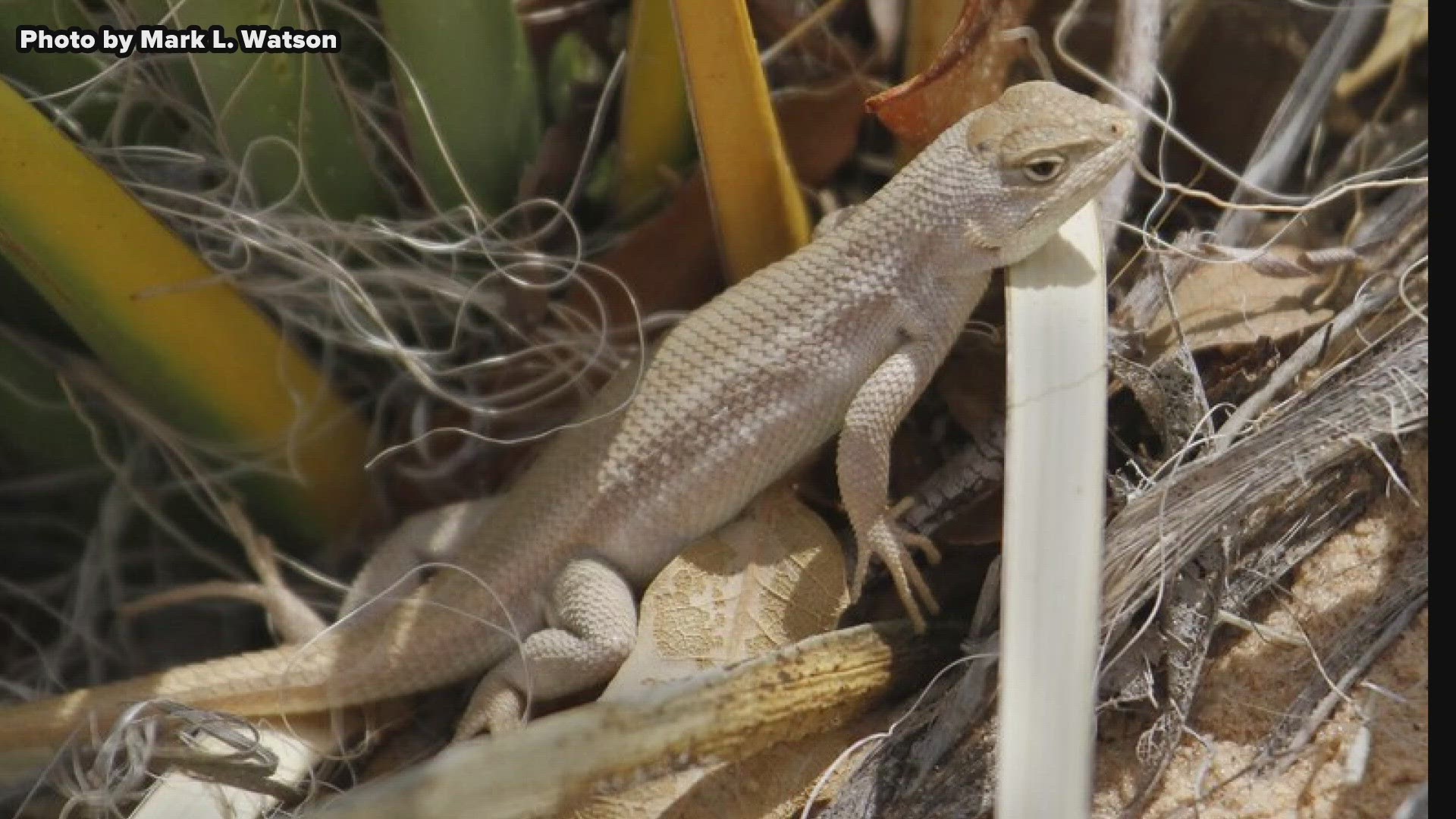MIDLAND, Texas — The debate rages once more.
This past June, the dunes sagebrush lizard was added to the endangered species list, once again, sparking debate within the Permian Basin about how this may affect the oil and gas economy.
These lizards live only in West Texas and parts of New Mexico - the heart of oil and gas drilling.
Because they have adapted to specifically live in this region, conservationists argue that drilling and mining operations may disturb their habitats.
Congressman August Pfluger (R-Texas), however, believes these lizards are bad for oil and gas businesses, making it harder to drill and mine.
“When you have another endangered species to consider and you have to get permission from the federal government to do certain things in the regions where those species are listed as endangered, then it just it restricts your ability to operate freely," Pfluger said. "It delays the process and extends the timeline and at the end of the day, it costs more money.”
Pfluger said the oil and gas industry would have to jump through a lot more hoops to get business done. It will also hit energy workers and the economy, since Pfluger said the US is dependent on the oil and gas that comes out of the Permian Basin.
“Naming a new endangered species then requires a whole other set of bureaucratic red tape to climb over and makes the process longer and cost more money," Pfluger said. "At the end of the day, it costs the American people in our economy in a very tough way.”
It’s why Pfluger has already introduced aptly named new legislation against adding the lizard to the endangered species list.
"It's called the LIZARD Act," Pfluger said. "That stands for Limiting the Incredulous Zealots Against Restricting Drilling, and it would repeal this movement by this proposal by the administration.”
He has also extended an invitation to President Joe Biden and US Fish and Wildlife Director Martha Williams, asking them to come down to the Permian Basin and see what potential effects adding the lizard to the endangered species list would have on the local community.
“I want them to come out and see what we do," Pfluger said. "I want them to see how we do business efficiency, the cleanliness, the emissions reductions that we have had, the way we take care of the land and leave it better for the next generation because that's important to this discussion.”

